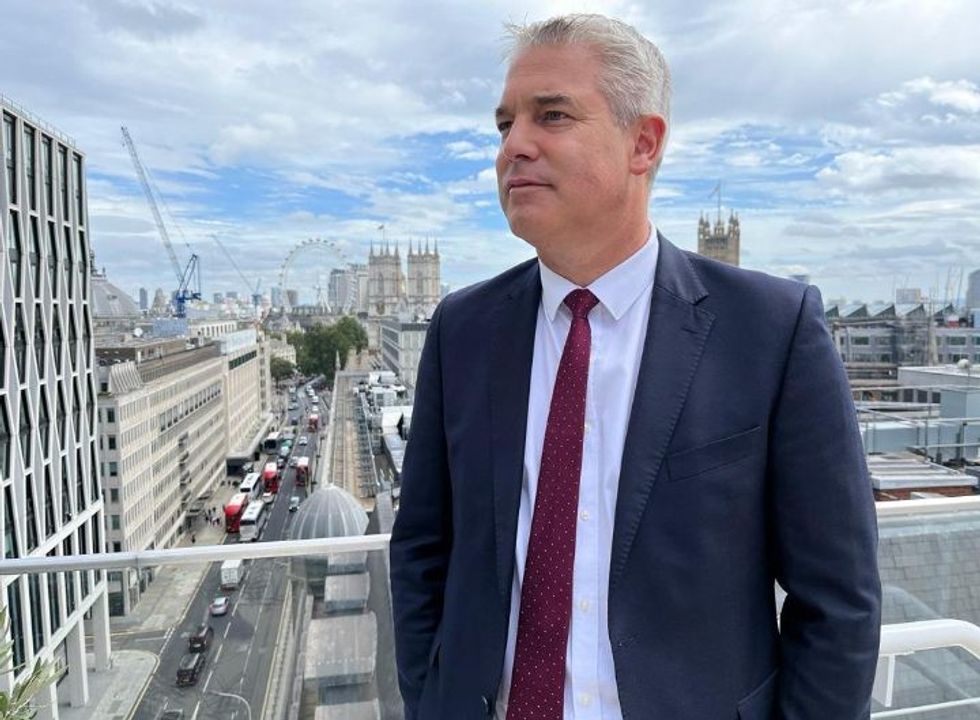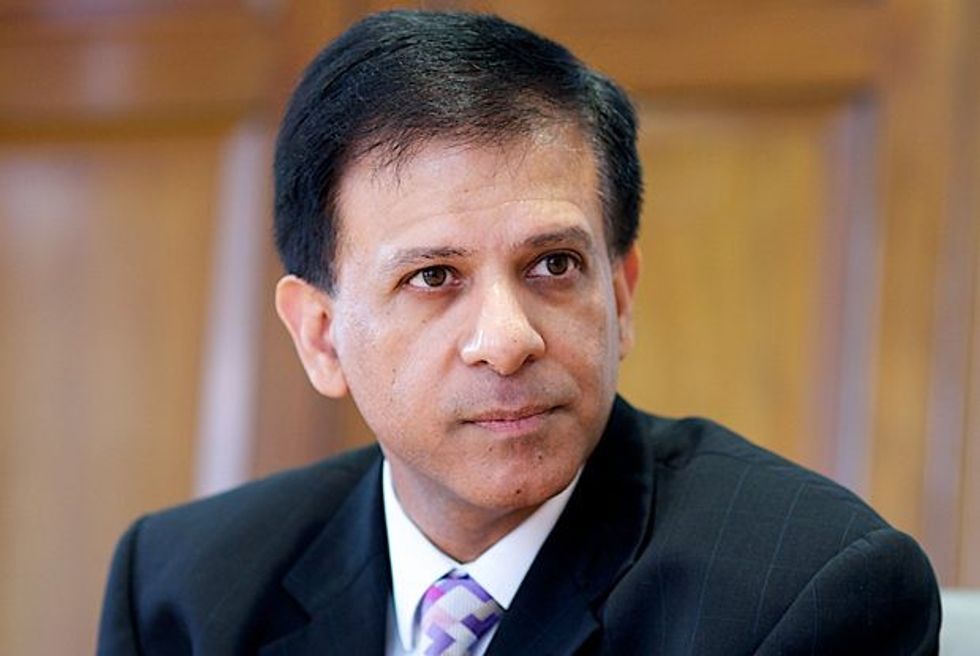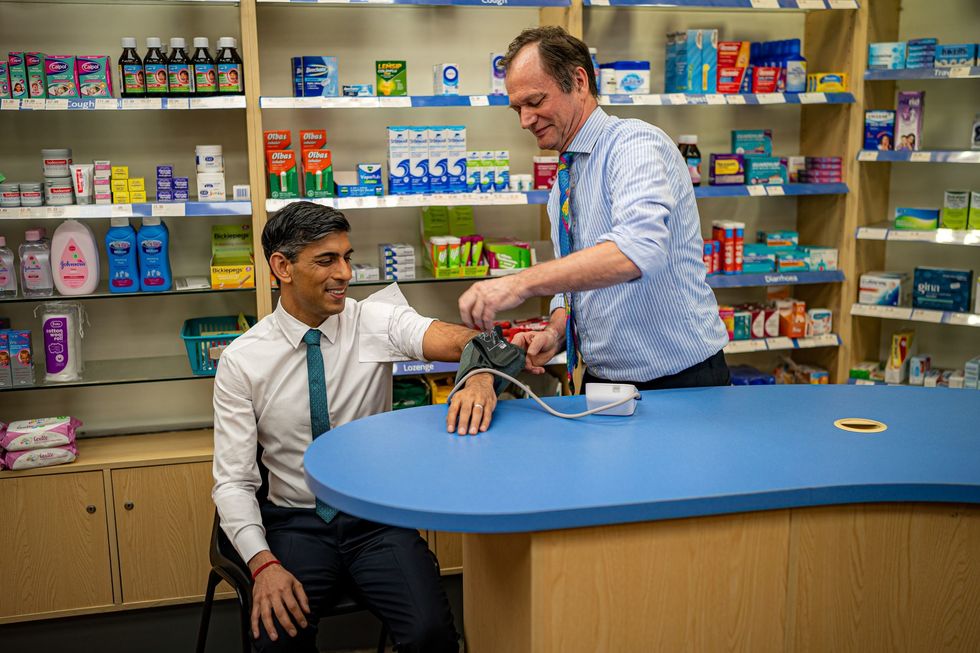RACISM has no place in the National Health Service, the health secretary has told Eastern Eye.
His comments come after doctors’ leaders made clear that medics of colour were more likely to face complaints and disciplinary hearings than their white colleagues.
Using figures obtained after freedom of information requests, we exposed how in the past decade, on average the GMC “erased” or struck off almost twice (1.8) as many registered south Asians doctors, and five times (4.8) as many black physicians, compared to white medics.
The health secretary, Stephen Barclay, told Eastern Eye that tackling racism was “a hugely important issue”.
“If someone looks at my record, as a member of parliament, when I first came into parliament, I had four years on the Public Accounts Committee.
“I led the committee in championing tackling a greater transparency with whistle blowers in the NHS, addressing some gagging clauses that have been used to silence whistle blowers who wanted to speak out and supporting much more transparency.
“Where there's racism, where there's violence, we take every effort to every action to stamp that out and address it.
“That's something throughout my time, long before as a minister, that I have taken a very clear leadership position on.”

Barclay told this newspaper that he was determined that should continue in his role as health secretary.
“I think that's about working with home office colleagues, with DFE [Department for Education] colleagues, but it's also within the department itself, thinking about how we're investing in better prevention.
“So, for example, when I was in King's Lynn talking to porters about the body cameras that they wanted to have.
“It's about ensuring that we're doing all we can to support those working on the front line.
“But it's also in terms of the actions of trusts themselves, who are the employers, and ensuring that where untoward behaviour happens, then rigorous enforcement is applied.”
Fine words
But the former chair of the doctors’ union, the British Medical Association (BMA), Dr Chaand Nagpaul told Eastern Eye that he wanted more than warm words.

“My reaction is that those are fine words, but they manifestly are having no real impact on the ground,” he said.
“I haven't seen from him any specific policy to openly address what is clearly a situation of inequitable experience and treatment of doctors of ethnic minority origin.
“In fact, what's even worse is that when you look at the rhetoric that comes out of the government, or for that matter NHS England, you very rarely will even see the word race discrimination, or racism ever mentioned.
“In fact, we hear about all sorts of mentions of inequality, of disparities, but not plain English race discrimination.”
All governments and secretaries of state needed to be judged “not on their words, but on the reality of change for areas they're responsible for”, he said.
“The truth today is that the NHS is riddled with fear amongst its staff,” Nagpaul continued.
“Every single hospital scandal you see, for example the most recent one in Birmingham, is about staff who are afraid to speak out, who feel afraid that if they do speak out, they will face recrimination.
“All the evidence shows that ethnic minority NHS staff are far more likely to suffer detriment if they speak out, and as a result are far less likely to want to speak up because of fear.
“That's today's NHS.
“If the government is very serious about its commitment to addressing that, it needs to go further and put in place tangible policies that really do allow people on the ground, especially those from ethnic minorities, to feel safe, to feel secure, to feel heard, to feel that their concerns will be taken seriously.
“But most importantly, to not have the worry that they will suffer as a result of actually making their fears known.”
Unloved doctors
Nagpaul made the point that the NHS relied on 42 per cent doctors of colour who do not feel valued.
“I'm deeply concerned because the evidence shows that they are not just suffering, because racism is having a negative impact on them.
“Nine per cent of doctors have left the NHS because of their experiences of unequal treatment and discrimination, 16 per cent have been off work due to stress or ill health, and 23 per cent are thinking of leaving.
“Now you’ve got to put this in the context of an NHS that is struggling with the highest backlog of care that it’s ever faced, an NHS that has 112,000 unfilled vacancies.
“And in that situation, if I was the health secretary, one of my biggest priorities would be to go out of my way to reassure our ethnic minority medical workforce and healthcare professionals, that they are valued so that they will want to stay in the NHS.
“Every healthcare professional, every doctor you lose, is just going to add further pressure on a health service that just isn't coping.”

The health secretary said the NHS in general and he in particular did value staff of colour.
“Indian nationals are the biggest group within the NHS,” said Barclay.
“The NHS has always relied on the contribution of its international workforce, and that is something that's been a key feature of the NHS over many years.
“That's why I've been speaking with groups, as I have, it's something I've taken an interest throughout my career in parliament, and people can see that in different roles that I've had.
“But coming back to my core focus on patients, it's essential that we’re there supporting staff, because otherwise, it translates into staff absence, or into issues of retention.
“So, this is in the NHS’ interest to get right, but it's also in the interests of patients, as well.”
Misguided rhetoric
During the pandemic, Eastern Eye was the first media to highlight how Covid was disproportionately affecting black and south Asian people.
Nagpaul, who also chairs the BMA’s forum for racial and ethnic equality, warned that things could get worse because under the NHS long term workforce plan, the government wanted to cut its reliance on overseas doctors.
“The government's rhetoric that it's come out with recently about reducing the reliance on overseas doctors, I think this is a very misguided rhetoric because the NHS isn't about relying on an overseas workforce.
“It was built upon an overseas workforce, and in a globalised environment in health, we need to understand that there is movement of doctors from nation to nation.
“Many of the doctors who come from other countries to the UK, are coming here for training.
“Whilst they're training, they’re providing a very real contribution in workforce in looking after the nation's health, and then they will go back to their country of origin.
“We’re also now seeing a situation where, because we are in a globalised environment, doctors are choosing where they may want to move and work, which areas they want to work in.
“And countries like Australia, countries like Canada, the USA are becoming increasingly popular.”
Innovations
Barclay said that the government was finding ways to make the health service work in different ways.
That included freeing up and getting rid of bureaucracy so community pharmacists to prescribe and dispense some medicines such as antibiotics.
“We have a huge range of people in pharmacy that are extremely experienced, and I did not feel we were making the most use of their skills,” the health secretary told Eastern Eye.
“I thought the pharmacy sector had more to offer, that's why through our pharmacy first programme, we're enabling pharmacists for the first time to prescribe antibiotics for seven conditions.
“It's why we're enabling our pharmacists to give oral contraception, and to take on more responsibility because we have a huge amount of clinical expertise, well trained people within our pharmacy sector.
“But the regulations previously restricted what they could do, and I’m interested is freeing up that regulation and allowing people to operate to the best of their ability.”
In a wide-ranging interview with Eastern Eye, Barclay also said he was committed to engaging with south Asian communities.
“They can see with the prime minister, who’s hugely committed to innovating, rolling out more services.
“This something that Rishi Sunak has been very strongly committed to, in terms of saying how do we invest in more services in the community?
“How do we make it easier for people to come and have those checks, those tests, those scans.
“We’ve invested £2.3 billion in our community diagnostic programme, more work in terms of our life science industry on prevention.
“Thinking about 13-year-old girls and cervical cancer and how are we’re using a vaccination programme to almost design out that in terms of a risk to girls moving forward.
“How we can use our vaccine programme in terms of some respiratory conditions, which is often a cause of people going into hospital at winter.
“So, we're looking to innovate, and that's something that the prime minister has been strongly committed to, it's something we've invested in as a government.”



















 Chhorii 2
Chhorii 2
 Reena Barai, chair of the PB Conference, on the podium with Sadik Al-Hasan, Harry McQuillan, Shilpa Shah and Nick Kaye on stage
Reena Barai, chair of the PB Conference, on the podium with Sadik Al-Hasan, Harry McQuillan, Shilpa Shah and Nick Kaye on stage Yasmin Karsan, Pritee Panchmatia and Fin McCaul
Yasmin Karsan, Pritee Panchmatia and Fin McCaul Baba Akomolafe, Rachna Chhatralia, Patricia Tigenoah-Ojo and Raj Matharu
Baba Akomolafe, Rachna Chhatralia, Patricia Tigenoah-Ojo and Raj Matharu Shailesh Solanki
Shailesh Solanki  Reena Barai
Reena Barai  Janet Morrison
Janet Morrison David Webb
David Webb